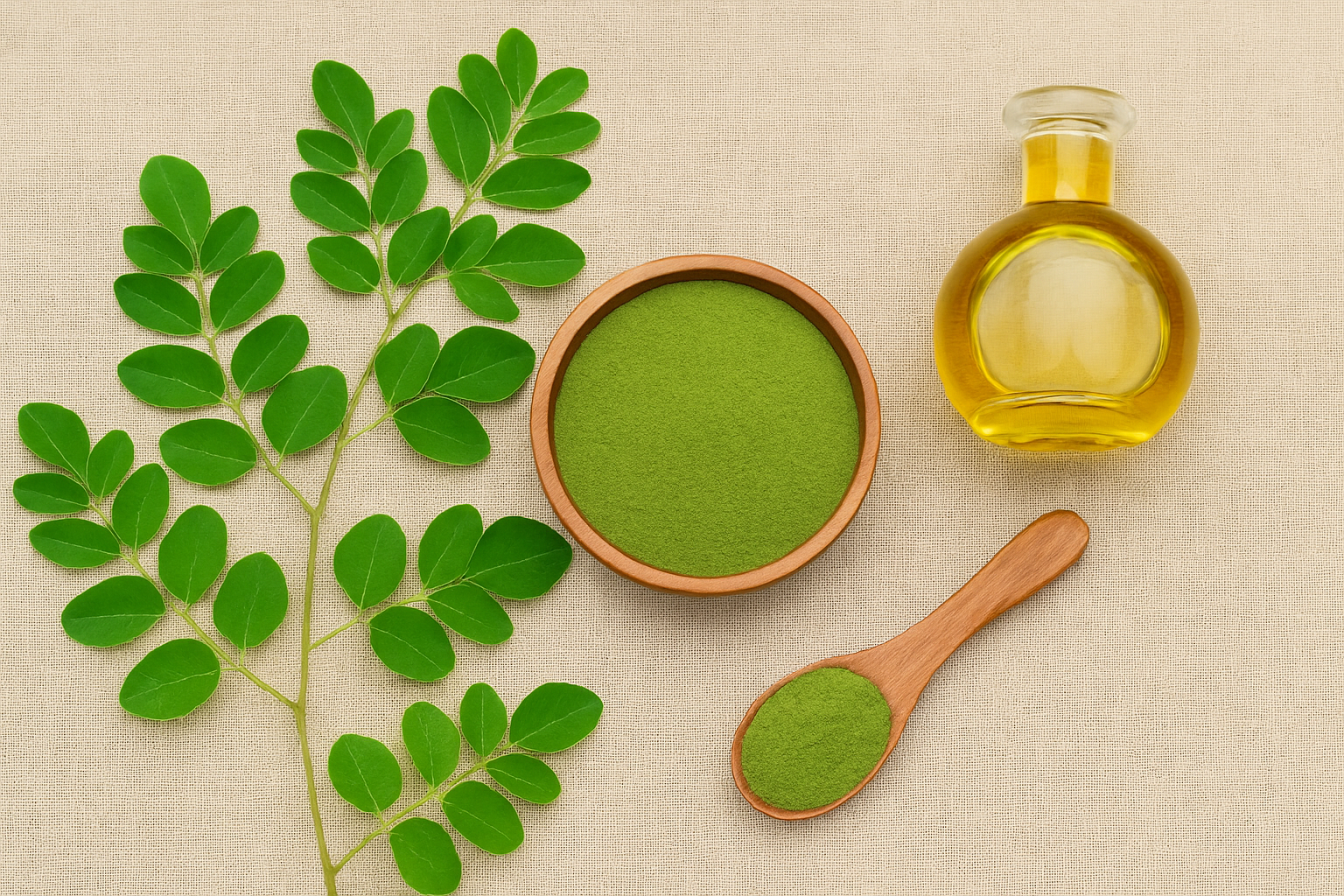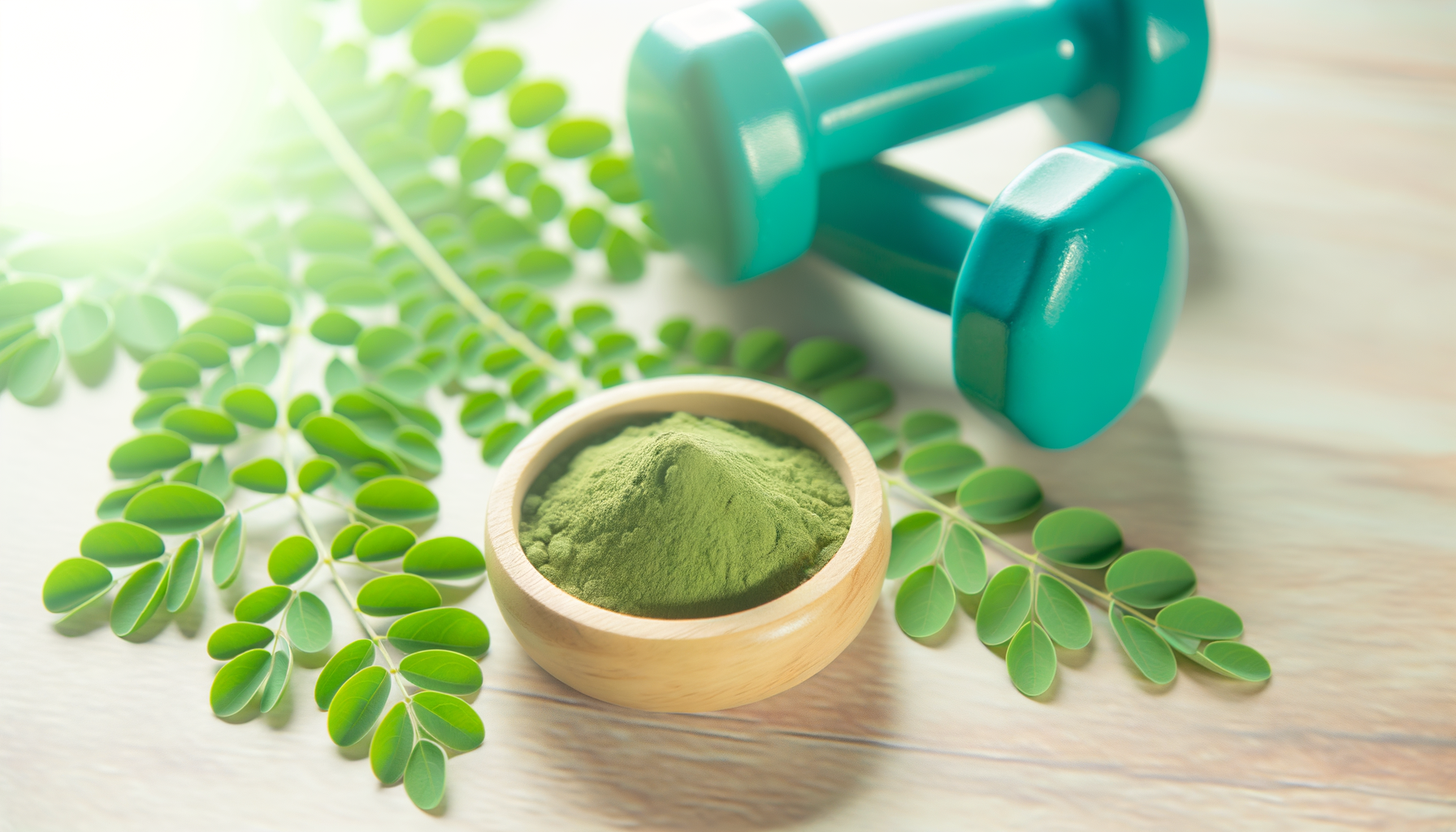
Is Moringa Good For Diabetes? Here’s What the Science Says
Diabetes is one of the fastest-growing chronic conditions globally, with millions of people diagnosed each year. In South Africa alone, diabetes affects over 4.5 million adults, with many more undiagnosed. Managing diabetes effectively involves lifestyle changes, medications, and dietary adjustments. However, there is growing interest in natural supplements that can complement traditional treatments—one of the most promising being Moringa oleifera.
Often referred to as the "Miracle Tree," Moringa offers a wide array of nutrients, antioxidants, and bioactive compounds that can support blood sugar control. This guide will explore how moringa helps with diabetes, backed by scientific studies, and how you can incorporate moringa products into your wellness routine.
What is Diabetes?
Diabetes mellitus is a metabolic disorder where the body either fails to produce enough insulin (Type 1) or becomes resistant to insulin’s effects (Type 2). Insulin is a hormone that enables cells to absorb glucose from the bloodstream and use it for energy. Without sufficient insulin activity, blood glucose levels can rise dangerously, leading to numerous health complications.
Type 2 diabetes is the most prevalent form and is closely linked to obesity, sedentary lifestyle, and poor diet. If left unmanaged, high blood sugar levels can damage blood vessels and organs, increasing the risk of heart disease, kidney failure, neuropathy, and vision loss.
Symptoms of diabetes include frequent urination, extreme thirst, fatigue, blurred vision, and slow wound healing. Early detection and ongoing management are essential to avoid serious complications.
What is Moringa?
Moringa oleifera is a fast-growing tree native to South Asia and parts of Africa. Traditionally used in Ayurvedic and African herbal medicine, every part of the moringa tree has nutritional or medicinal value. The leaves, however, are the most commonly consumed and studied due to their dense nutrient profile.
Moringa leaves are rich in essential vitamins (A, C, E), minerals (calcium, magnesium, iron), and antioxidants like quercetin and chlorogenic acid. They also contain isothiocyanates and flavonoids, which have anti-inflammatory and antidiabetic properties.
At Moringa Utopia, we proudly offer 100% organic, South African-grown moringa products, including:
Our moringa products are caffeine-free, naturally energizing, and packed with bioactive compounds designed to support balanced blood sugar levels.
How Moringa Supports Blood Sugar Control
Antioxidants & Polyphenols
Moringa leaves are an excellent source of antioxidants such as quercetin, beta-carotene, and chlorogenic acid. These compounds play a critical role in neutralizing free radicals that cause oxidative stress—a major contributor to insulin resistance and cell damage in diabetics.
In a study published in Frontiers in Pharmacology, moringa leaf extract was found to significantly reduce fasting blood glucose levels and improve insulin sensitivity in diabetic animal models. This suggests that regular moringa intake may offer protective benefits against the progression of diabetes.
Also read: 7 Benefits of Moringa for Women
Chlorogenic Acid and Glucose Absorption
Chlorogenic acid is a naturally occurring compound in moringa that slows the absorption of glucose in the intestines. This delay helps prevent postprandial (after-meal) blood sugar spikes, a common issue in Type 2 diabetes.
In a 2015 study published in the Journal of Food Science and Technology, diabetic rats treated with moringa extract experienced lower blood sugar levels and improved glucose tolerance. These effects are thought to be due to moringa’s ability to modulate glucose uptake and increase insulin activity.
High Fiber Content
Moringa leaves contain both soluble and insoluble fiber, which are beneficial for blood sugar regulation. Soluble fiber forms a gel-like substance in the gut, slowing the digestion of carbohydrates and the release of glucose into the bloodstream.
This helps to flatten the glycemic curve and maintain stable energy levels throughout the day. Fiber also promotes satiety, making it easier for diabetics to manage weight and reduce cravings for sugary snacks.
Recommended: 6 Benefits of Moringa for Men
Insulin Secretion and Sensitivity
Some compounds in moringa appear to enhance the body’s natural insulin secretion and improve the sensitivity of cells to insulin. This dual action can help the body use glucose more efficiently and reduce overall blood sugar levels.
Research published in Phytotherapy Research indicated that participants who consumed 8g of moringa leaf powder daily for 40 days saw a significant reduction in their fasting blood glucose levels. Enhanced insulin production and better glucose uptake by cells were noted as key mechanisms.
Anti-Inflammatory Benefits
Chronic inflammation is a known driver of insulin resistance. Moringa contains potent anti-inflammatory agents like isothiocyanates and flavonoids that help lower inflammatory markers in the body.
By reducing systemic inflammation, moringa supports healthier insulin function and better metabolic control. This makes it particularly beneficial for people with metabolic syndrome or prediabetes who are at risk of developing Type 2 diabetes.
You'll also like: What Happens When You Take Moringa Every Day?
Preclinical & Human Evidence
Preclinical Studies
Multiple animal studies have explored the effects of moringa on blood sugar levels. Rats with chemically induced diabetes showed improved glycemic control after receiving moringa leaf extract for periods ranging from two to eight weeks. Doses of 100–300mg/kg were commonly used.
These studies also reported secondary benefits such as improved lipid profiles, reduced oxidative damage in the liver and kidneys, and overall better metabolic function. Although promising, these findings need to be validated in larger human trials.
Human Clinical Trials
Human studies, though limited, are growing in number. One Thai clinical trial showed that diabetic patients who took 20g of moringa leaf powder daily for six weeks experienced a notable decrease in fasting blood sugar and improved glucose tolerance.
While more large-scale studies are needed, existing human research supports the role of moringa as a functional food that complements medical treatment for diabetes.
Also read: Who Should Not Take Moringa?
Safety, Side Effects & Drug Interactions
Moringa is generally considered safe when consumed in recommended doses. The World Health Organization (WHO) lists moringa as a valuable dietary supplement for malnutrition and metabolic health.
However, some people may experience mild gastrointestinal issues such as gas or bloating, especially if taking high doses. Because moringa may lower blood sugar levels, it’s important to consult with a healthcare provider if you’re already on diabetic medications to avoid the risk of hypoglycemia.
Pregnant women and people with liver or kidney conditions should also exercise caution and consult a doctor before incorporating moringa supplements.
Lifestyle Integration for Best Results
Incorporating moringa into your daily wellness routine is most effective when paired with a healthy lifestyle. Eating a balanced, low-glycemic diet rich in fiber, whole grains, and lean protein will amplify moringa’s blood sugar benefits.
Daily physical activity, such as walking, swimming, or strength training, enhances insulin sensitivity and supports weight management. Stress reduction techniques like mindfulness, yoga, or deep breathing can further stabilize blood sugar levels.
Adequate sleep (7–8 hours per night) and regular monitoring of glucose levels are also crucial components of effective diabetes management.
Recommended: 8 Moringa Powder Benefits for Your Skin
Moringa Utopia Product Recommendations
1. Moringa Leaf Powder
Perfect for smoothies, soups, or sprinkling over meals. Start with 1–2 teaspoons daily and adjust as needed. Rich in fiber and polyphenols, it helps slow glucose absorption and supports digestion.
2. Moringa Tablets
Ideal for busy lifestyles. Take 2–4 tablets per day with water. Each tablet delivers a consistent dose of moringa to help regulate blood sugar levels and reduce inflammation.
3. Moringa Extract Juice
A concentrated, fast-absorbing option. Take 25–50ml daily. Great for those who prefer liquid supplements and want quicker nutrient absorption.
All products are 100% organic, caffeine-free, and made in South Africa with ethical sourcing and sustainable practices. Also, find out if you should take moringa in the morning or at night.
Real-Life Success Story
Thuli M., 42, from Cape Town:
“I was diagnosed with insulin resistance a year ago and started taking Moringa Utopia’s leaf powder daily in my smoothies. Within three months, my fasting glucose dropped significantly. I feel more energetic, my digestion improved, and I’ve even lost 5kg. It’s now a staple in my home.”
Stories like Thuli’s are not uncommon. Customers regularly share testimonials about how moringa has transformed their energy, blood sugar control, and overall wellness.
You'll also like: Moringa vs. Matcha: Which is best?
Should you use Moringa for Diabetes
Scientific research supports what many traditional cultures have known for centuries—moringa is a powerful, natural ally in managing diabetes. Its rich blend of antioxidants, anti-inflammatory agents, and blood sugar-regulating compounds makes it a valuable addition to a diabetic-friendly lifestyle.
Whether you’re prediabetic, managing Type 2 diabetes, or simply aiming to prevent future complications, Moringa Utopia offers trusted, locally produced products to help you stay on track.
Explore our full range of moringa products and take the first step toward balanced blood sugar and better health—naturally.
Disclaimer
The information provided in this article is for educational and informational purposes only and is not intended as medical advice. While Moringa oleifera has been studied for its potential benefits in managing blood sugar levels, it is not a substitute for professional medical treatment, diagnosis, or advice. Always consult with your healthcare provider before starting any new supplement, especially if you are currently taking medication or have a pre-existing medical condition. Moringa Utopia products are not intended to diagnose, treat, cure, or prevent any disease.


